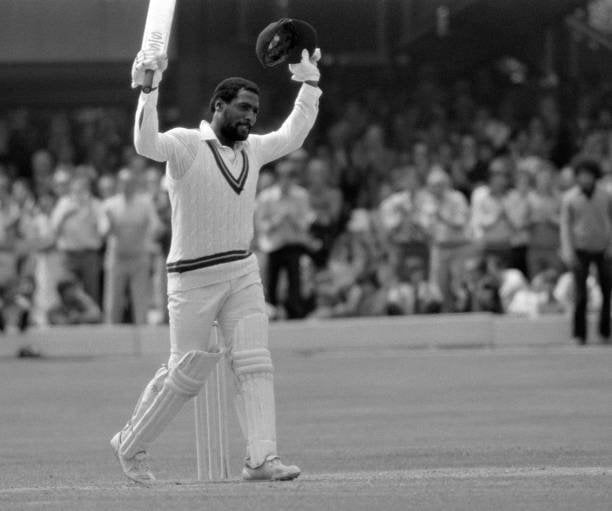

Viv Richards was an iconic batsman for the West Indies. Retiring in 1991, this hero on the pitch hasn’t been matched yet.
Richards is one of the few players to join the UK and an Indian team in his lifetime. When the switch came, it didn’t just change the game for the players, it also affected the cricket odds for a generation.
Let’s dive into why.
Viv Richards’s English Start
Richard was born in Antigua, which at the time was part of the British Leeward Islands. It’s not a surprise that the future legend would enjoy cricket, as his neighbor was Pat Evanson, the Captain of the Antigua team.
In the early days, Richards was encouraged by everyone to join the sport professionally. His father, his neighbors, and even the restaurant he worked for funded his new whites.
When he was 17, Richards joined the Rising Sun Cricket club, but he was soon suspended.
Playing for Antigua, Richards got out for a golden duck. He was disgusted with himself and didn’t want to play again, but the screams from the crowd and the authorities at the time demanded he redeem himself.
During the second attempt, he was out for a duck again.
By the age of 19, Richards had moved teams, and now represented the Leeward Islands. In his debut match, he scored the most points out of every player, and yet their team still suffered a heavy loss.
Nothing was working out for Richards, so a new start was needed again. This time he relocated to the UK. His new team was the Lansdown C.C. in Bath.
While there, Richards became an assistant groundsman to help finance his move and create an income while he was building up an English career. But, by the end of this first season, Richards was creating the highest batting averages.
He was starting to turn heads.
Somerset CCC offered him a position on their team with living accommodations provided. By 1974, the whole cricketing world was aware of Viv Richards.
Joining The West Indian Cricket Team
By 1975, Richards was aiming for another relocation. He joined the West Indian cricket team and in his second Test match, scored 192 points – an unbeatable figure.
His progress kept going, and by 1984, Richards was the captain of the team. Under this supervision, the team didn’t lose the Test series. He is still the only West Indies captain to never lose an entire Test event.
A Captain For The Ages
Richards remained as Captain between 1984 and 1999, and in that time he won 50 Test matches.
However, after 1985, Richards’ performance started to dip. Age was catching up to him. Although he could captain his team well, his own skills were failing.
Richards knew when to let his team take the lead, and how to encourage them from the sidelines.
Viv Richards In Stats
Over his entire career, Richards played between 1974 and 1991. In that time he completed 121 matches, made 182 innings, and 8540 runs. He reached a 50.23 batting average.
His best year was in 1976. In that time he played in 11 matches, created 19 innings, and completed 1,710 runs. His batting average was an impressive 90.00.
His worst year was, as expected, close to his retirement. In the 1989 to 1990 season, Richards played in just 3 games and completed 141 runs. His batting average was a low 28.20.
The next year, he played in 5 games, completed 185 runs, and had a batting average of 24.85.
Some may argue that Richards should have retired earlier, but we cannot deny his spirit.
Viv Richards always did his best against England. Between 1976 and 1991, he played in 24 matches against the country and completed 2,057 runs for a batting average of 64.28.
Viv Richards A Records And Honors
Viv Richards’ first major achievement was in 1986. In that time, he became the first batsman to score a strike rate of over 150 during a Test century.
In 1986, Richards recorded the fastest century in Test history, a record he kept until Misbah-ul-Haq equaled his 56 balls in 2014, and Brendon McCullum surpassed his record in 2016.
Richards also set the record for the fastest batsman through his 21 innings at 1,000 ODI runs. This record has been beaten by 3 batsmen now (Quinton de Kock, Kevin Pietersen, Jonathan Trott, and Babar Azam).
To this day Viv Richards holds the record for the largest individual ODI score in the 4th position, coming in at 189.
Richards was also the first player to get double scoring in 50 wickets and 1,000 runs.
It wasn’t until Richards retired that he received his honors. In 1994, Richards was appointed an Officer of the Order of the British Empire due to his commitment to cricket.
Final Thoughts
Viv Richards was a force to be reckoned with, and although he had his ups and downs, this legendary player made the sport what it is today. For the latest sports betting odds, click here

